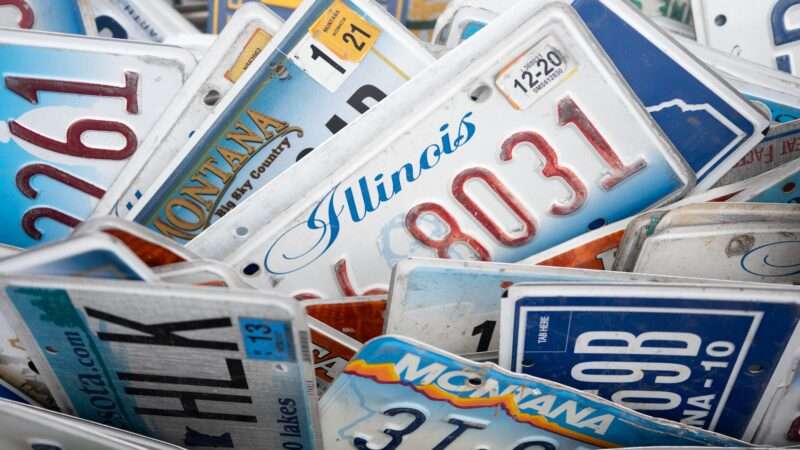
For the price of $77 to $224, Pennsylvania residents can get a personalized license plate that "contain[s] a combination of up to seven letters and/or numbers," per the state's Department of Transportation (PennDOT).
That is unless your application for a vanity plate is among the 2,872 rejected over the years.
The department keeps a "Do Not Issue" list, effectively banning thousands of "unacceptable configurations" that they interpret as euphemisms, epithets, or obstructions to law enforcement.
These restrictions are backed by PennDot's loosely defined list of 16 criteria, which the department's staff strictly adheres to, using internet slang dictionaries to check if the acronyms pass.
To be fair, it's not the entire list that raises eyebrows. Restrictions on libel or slander—as well as text that meddles with the license plates' primary purpose "to provide a State-issued, visible, and unique alpha-numeric identification mark for display in a uniform manner"—make sense.
But then you have "words which inflict injury or tend to incite an immediate breach of the peace." What does that include, exactly? It includes what the department staff says it includes.
Also not allowed are acronyms that suggest sexual innuendo, like BLOWME, or contain profane or obscene intent, like DZZNUTZ. Don't even think about references to excretory functions.
Pennsylvania is far from the only state that has banned acronyms from vanity plates. New York doesn't allow NOTPOLCE or, for whatever reason, AY000000. Tennessee banned ILVTOFU back in 2014 for a vegan application. In 2017, Georgia banned Donald Trump's infamous COVFEFE gaffe. Kentucky said no to KARMA.
The examples don't end there; a list of banned personalized plates is commonplace across the U.S. But the constitutionality of the matter is not necessarily settled.
In 2015, a Texas nonprofit argued that displaying the Confederate flag on the organization's special license plate was their First Amendment right. In a 5-4 vote, the court disagreed.
"In our view, specialty license plates issued pursuant to Texas's statutory scheme convey government speech," former Justice Stephen Breyer wrote for the majority. "Were the Free Speech Clause interpreted otherwise, government would not work."
The dissent argued that most people do not recognize speech on a license plate as government policy. "The Court's decision passes off private speech as government speech," wrote Justice Samuel Alito, "and, in doing so, establishes a precedent that threatens private speech that government finds displeasing."
The Court's ruling, however, applied to special plates with names and logos, not personalized plates. There is thus no official ruling at a national level as to whether vanity plates are private or government speech. This leaves plenty of room for state officials to interpret the propriety of applications for approval, and even to rescind vanity plates to address complaints.
Without an official distinction, however, there have been many instances of successful lawsuits to reverse rejections, from striking down Kentucky's rejection of IM GOD to stopping California's crackdown against messages "offensive to good taste and decency."
Eugene Volokh, a professor of law at the University of California Los Angeles School of Law, wrote that lower courts, upon petition, have typically recognized the design of the plate as government speech, but not the text itself. But until there's an official distinction by the Supreme Court, rejected applicants who are upset can try suing. Otherwise, the next-best option is taking it up to the department.
And though PennDOT is willing to discuss rejections with applicants, they have a disclaimer: "PennDOT reserves the right to limit or reject certain requests."
The post Your Local DMV May Have No Sense of Humor appeared first on Reason.com.







